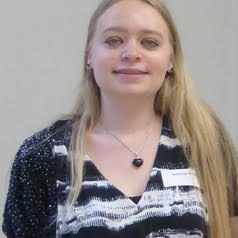Antonia Wimbush is a postcolonial scholar who graduated from a PhD at Birmingham in 2018. She joined Liverpool University Humanities department in October 2020. She took up a Leverhulme Early Career Fellowship under the mentorship of Prof. Charles Forsdick. Her project is entitled 'Representing the BUMIDOM: French Caribbean Migration in Literature and Culture.' She is the author of Autofiction: A Female Francophone Aesthetic of Exile (Liverpool University Press, 2021).
Interviewed by Elle Morgan
This interview is spread across my own website The French Lettres, and also Everybody’s Reviewing in Leicester. This is because of Leicester’s close connection with postcolonial studies. Indeed, Antonia's fascinating expertise on migration will likely be of interest to many creatives residing in the city. The literary scene in Leicester has long been engaged with the same issues of displacement, migration, and home that Antonia writes about in her latest book, Autofiction: A Female Francophone Aesthetic of Exile.
Originally, the book was a thesis, its aim being to address the wealth of writers whose work existed outside of the metropolitan: those who are not white, male or middle-class. During the interview, we discuss writers such as Dante Alighieri (who wrote from political displacement in his native Florence) as a famous example of what some people mean by 'exiled writers' because he fits into all of those privileged categories. Antonia’s work interrogates this by engaging with writers such as Nina Bouraoui, from Algeria and France. Her work also expands upon Julia Kristeva’s threefold explanation of 'exile': geographically, as writers, and also as women. She says: 'I am deeply interested in women writers who write in a metaphorically exiled position, in an imagined place.'
She expands upon this by referencing Edward Said, whose work interrogates the notion that 'exile' means to be a member of the bourgeoisie and therefore somehow 'important' and 'mattering.' Antonia is clearly passionate about the sense of 'otherness' that comes from not belonging, and this is evident from her work teaching emerging scholars at Liverpool University.
As a Lecturer, Antonia has seen many early-career scholars, such as undergrads and postgrads, who have been engaged in research on memory. There is a particular pattern of interest in concrete examples of statues and monuments, as well as identity. As she teaches in postcolonial Francophone subjects and has long been interested in the notion of 'Carribbeing,' her research corresponds urgently with the thirst for learning about underrepresented writers.
She says: 'It was a thesis on four writers, at first. For the book, it widened, expanding to six, which was a challenge. I looked at all sorts of writers whose postcolonial entity is even contested, moving towards writers in Quebec. There are writers such as Michèle Rakotoson, in Madagascar who underwent political exile for their comments against the dictatorship.'
Clearly, it is a timely area that has been contributed to, and expanded by, a scholar considerate of the ambiguities concerning exiled voices.
Elle Morgan is a student and writer who is usually quite lost, navigating both life and various university buildings. If you would like to find her, she is on the internet here.



No comments:
Post a Comment